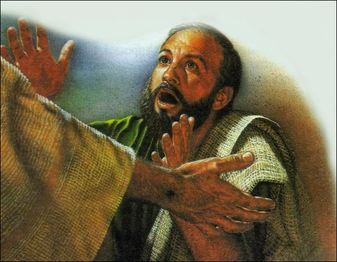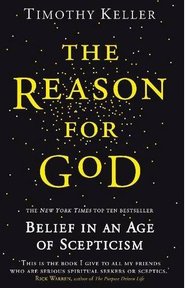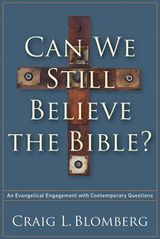God’s word has something to say about this. It is clear that “untreated” doubts can erode our relationship with God, but a doubt is essentially no different from any other human weakness to be faced and worked on. We need to remind ourselves that the disciples often doubted (Luke 24:38) – even after Jesus’ resurrection: “When they saw him, they worshiped him; but some doubted” (Matthew 28:17). The interesting thing is that in all these cases Christ gently asked his doubting disciples “Why do you doubt?” but never condemned them for it or said “You must not doubt!” – he knew that doubt was a part of life for fallible humans.
The fact is, we all have doubts about many things in life and do not usually feel badly about that – only when our doubts come within the realm of our faith do we tend to feel that we are failing because of them. In his book Know Doubt (see our short review in the Book Reviews section), John Ortberg shows that doubt is actually a necessary part of growth. Our doubts are often based on lack of information and can prompt us to search for truth – in the long run actually strengthening our convictions.
We can still trust despite our doubts, and God wants us to learn to trust him even when we may doubt the details. The Bible shows clearly that God can often continue to work with us despite our doubts. He did it with Peter (Matthew 14:22-33) and He can do it with us. God’s word expressly tells us to “Have mercy on those who doubt” (Jude 1:22), and He does not deal with us any differently.
So how do we deal with the doubts that we get? First, we ask God to help us in that specific area. One of the best examples of this is the way in which the doubting father pleaded for help with his doubts and was rewarded by Christ. The father’s cry of “Help my unbelief” can be ours, and we can expect help in exactly the same way. In times of doubt it’s easy to make things more complicated for ourselves, however. We can tell ourselves that the doubting father was unconverted and did not fully know the truth – that we who know more should do better. Perhaps the best answer to this comes from the Bible itself, in the account of John the Baptist.
While John was imprisoned and facing execution, he sent to Jesus to ask him if he really were the promised Messiah (Matthew 11). Rather than chastise John for his doubt, Jesus pointed to the miracles and signs that he was doing and thus to the answer to John’s doubt. But the important part of this story that we must not miss is that it was at that exact point in time – just as John had admitted his doubt – that Jesus told his disciples: “I tell you the truth: Among those born of women there has not risen anyone greater than John the Baptist” (Matthew 11:11). It was at precisely the moment of John’s greatest doubt that Jesus called him the greatest among men. Clearly, God knows it is human to doubt and is willing and desirous to point us to the answers to our doubts. But like John, we must ask Him.








 RSS Feed
RSS Feed
